Video games are not only a fun way to kill time in your parents’ basement, they have also become a viable career option. The $138.7 billion industry offers talented gamers a way to earn income via popular sites such as Twitch, a streaming platform created in 2011 for gamers to share content. However, not everyone is treated equally when trying to get in on the action.
Jewel Rattanakongkham is a 19-year-old student at the University of South Florida and a team leader for the popular multiplayer video game, Overwatch. She said she is constantly targeted for her gender online, which for her is frustrating.
“I think it’s kind of harder as well,” Rattanakongkham said. “Not just the treatment, but there’s a feeling you have of like, ‘I need to prove that I’m actually good at this game, because maybe then they’ll stop judging me.’”
According to Statista, a German statistics portal, women account for 46% of gamers in the United States, a number that has been increasing since 2006. Despite this, women are not given the same respect. Many feel the need to hide their gender identity online to avoid abuse.
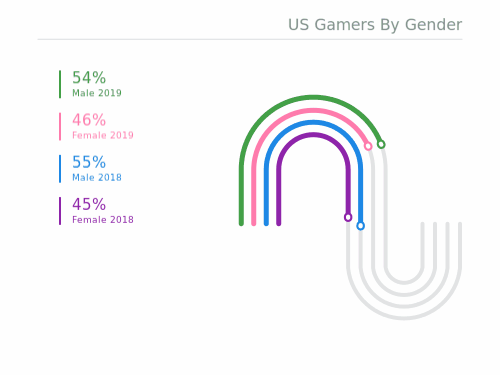
Rattanakongkham said that anything from choosing a female avatar to just speaking into her microphone leads to men treating her differently. It can sometimes lead to harassment.
“In Overwatch in particular, if you play with a female character, you are kind of seen as more unskilled,” Rattanakongkham said. “And it’s just kind of like, ‘we are going to put you in your place because you are playing a female character, so obviously, you don’t know anything.’”
She added that this can affect the levels at which women play, as well as act as a barrier in the professional world of gaming. At the highest tier of gaming in Overwatch, there is only one female player in a league filled with hundreds of men. “She gets treated very differently,” Rattanakongkham said. “She’s either praised by everyone or hated by everyone.”
The comments don’t end there. Being women makes them targets for lewd and sexual comments.
Joanna Fleming, a 20-year-old gamer who goes by LuckyGirlGamer1 on her Twitch platform, started making YouTube content in 2017. After expanding onto Twitch, she began noticing the sexual nature of comments.
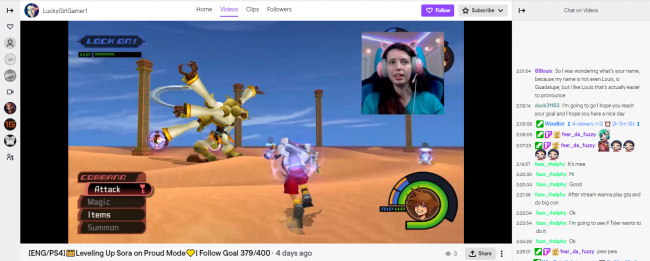
“They try to get me to show my breast on stream,” Fleming said. “I’m sure other female streamers have the same problem.”
She said she tries not to let the comments bother her, and she works with chat moderators to block and report inappropriate viewers.
Fleming is not alone. Alexandria Andrade, another content creator who streams under the Twitch name Otakufangirl210, has experienced similar issues. Andrade said she has had requests to collaborate with other gamers who expect her to expose her body during streams.
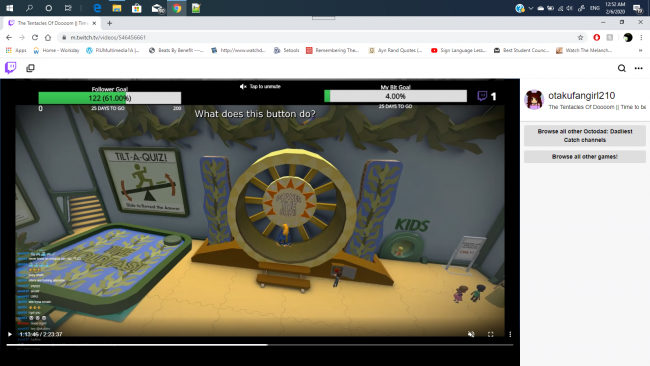
According to Idrissa Presley-Peterson, founder of Florida Game Con and president of the video game club at the University of South Florida, harassment of women is common in the gaming world.
“Just the other day there was a situation where a female player was being targeted in a way because of their performance, but you could tell it was just because of their gender,” Presley-Peterson said. “And that’s a situation I see quite often, and it’s kind of sad to say.”
Andrade said this kind of treatment goes beyond how men treat male streamers. She associates this inequality to the way some female streamers engage with their audience. She added that some female streamers use provocative approaches to garner attention.
“Because some girl streamers expose themselves or do things for … money, I believe it makes it hard to be able to feel equal [to male streamers] in a modern streaming group,” Andrade said.
This, she said, has caused male gamers and viewers to assume all female streamers act this way.
This notion is known as the e-girl or the gamer girl stereotype and it thrives on the assumption that all female gamers play for donations or attention rather than simply for the love of the game, Rattanakongkham said. It’s this kind of treatment that has provoked streamers like Andrade to avoid using web cameras while streaming. By doing this, she can reduce unwanted attention.
For Rattanakongkham, this attention began when she was just 15 years old on Overwatch.
“My friends and I were playing a competitive game together,” Rattanakongkham said. “And then, as soon as I said something, the person said, and I quote, ‘your voice makes me wet.’ And I didn’t know how to respond.”
The harassment only continued the more she played, but she said having supportive friends lessens the burden.
“None of [the comments] really have, I guess, hurt me or made me stop playing the game,” Rattanakongkham said. “A lot of the instances I do remember are when my friends, my older friends, would immediately … I wouldn’t say attack them, but kind of be like, ‘hey, you shouldn’t be doing that, that’s not cool.’”
She said these abuses are not solely limited to gender. Racial stereotypes also prevail in the gaming world, and for Rattanakongkham, this means that other players attribute her gaming talent to her race rather than her skills.
“There have been a couple of comments people have made,” she said. “‘Oh, they’re female, but they’re an Asian? I guess that’s why they’re doing good because they are Asian.’”
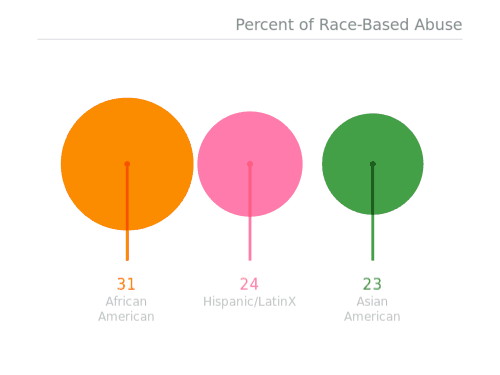
According to research by the Anti-Defamation League, 31% of African Americans, 24% of Hispanics and 23% of Asian Americans said they have been harassed online because of their race. For Rattanakongkham, every mistake is blamed on her gender and every triumph is attributed to her race, and it is even worse for non-Asian minorities.
“Even though I would consider myself a minority, in that aspect, my treatment would still not be as bad as someone who was African American and a female playing that game,” Rattanakongkham said. “They would probably get treated way worse.”
Presley-Peterson said that he is targeted for his race during streaming sessions.
“It’s not a very diverse realm right now,” he said. “It’s definitely dominated by mostly male [demographic]. I think that’s a lot of what is contributing to the harassment. I believe that if it were a more diverse community, then there would be more opportunities regardless of whatever race or [sexual] orientation or gender you are.”
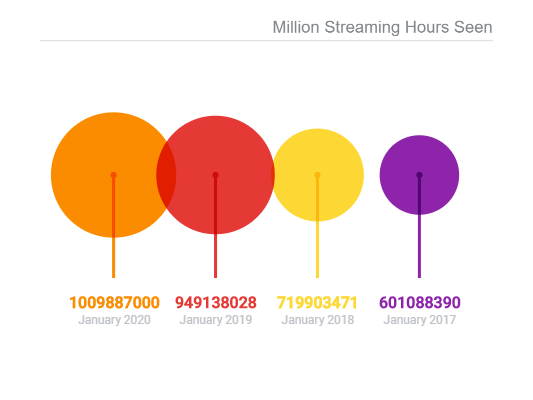
According to him, changing the “toxic” environment within the gaming sphere would require a cultural shift in the way people perceive each other.
For Rattanakongkham and other gamers, these trolls won’t stand in their way.
“I think when I was younger, it was really frustrating,” Rattanakongkham said. “It doesn’t bother me as much anymore because I know my value and I know my skills. If they don’t, it’s fine, I still love the game.”
































